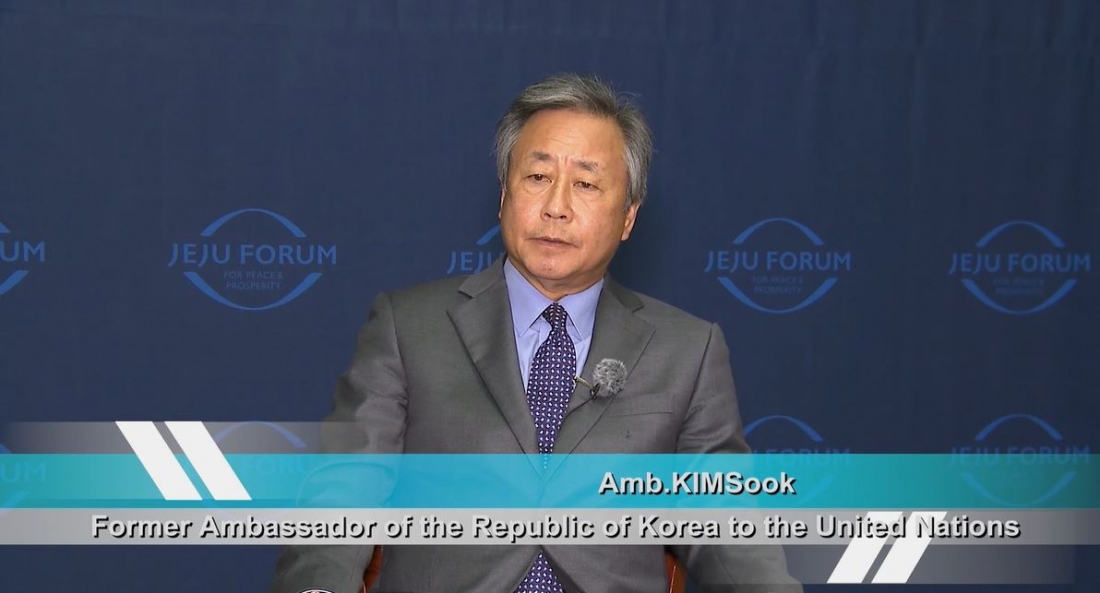
[U.S.-China Relations for Peace and Prosperity in East Asia]
Q1. The sanctions on North Korea for its denuclearization have been pushed forward with the cooperation of the international community. Which conditions do you think would make the sanctions on North Korea most effective? What measures should South Korea take, and how could China be involved in a more effective manner for North Korea’s denuclearization?
Sanctions are a non-diplomatic tool for changing the policy direction of a nation that contributes to the instability of the international community. In this case, we need to strengthen our coordinated policies to move North Korea from its current path of nuclear weapons development to denuclearization. Once a sanctions resolution is passed, usually people apply it and forget it. The two most important things for sanctions effectiveness are implementation and international coordination.
Coordination among like-minded countries is very important to make a sanctions regime effective. President Park Geun-hye’s visit to three African countries is very important in this aspect. All three—Ethiopia, Uganda and Kenya—have traditionally maintained good relations with North Korea. With these countries joining to strengthen the international sanctions regime on North Korea, it will be more effective.
Q2. How can a system of Northeast Asia for multilateral security and cooperation be achieved?
Unlike Europe and South America, Asia lacks a multilateral security system. There could be several reasons for not having such regional security apparatus—cultural differences, historical divisions, and so on. It is very difficult for East Asian countries to form such multilateral security organizations.
But, these days, almost everything converges to the North Korean nuclear issue. Several years ago, when we were having the Six Party Talks, one of the subcommittees was tasked with discussing forming a Northeast Asian multilateral security system. But North Korea’s adamant position on the nuclear weapons means that now the Six Party Talks are no more. First and foremost, denuclearization is the precondition for forming a Northeast Asian multilateral security system.
[On Peace]
Q1. What do you think is an effective approach for local government with regard to bringing in international organizations to Jeju as an “island of world peace”?
Jeju Island first needs to have a strategic idea about what fits Jeju Island in terms of hosting some international organizations. Jeju is known to be the “peace island,” but “peace” is a very big theme that applies to almost all international organizations. My suggestion is to have the strategic way of thinking about what kind of international organization does Jeju Island want to host. Only after having that clear idea, can Jeju work in close coordination with the central government and international organizations.
Q2. How can multilateral talks such as the Jeju Forum contribute to peace promotion?
There are many dignitaries attending this 11th Jeju Forum, including UN Secretary General Ban Ki-moon. Their presence at the forum is contributing to the enhancement of peace and prosperity.
* Amb. KIM Sook is the former Ambassador of the Republic of Korea to the United Nations.
Amb. KIM Sook said that Asia lacks a multilateral security system, unlike Europe and South America. There could be several reasons, including cultural differences and historical divisions, that make it very difficult for East Asian countries to form such multilateral security organizations.
Currently, regional security concerns all converge on the North Korean nuclear issue, said Amb. KIM. In fact, one of the Six Party Talks subcommittees was tasked with discussing forming a Northeast Asian multilateral security system.
In order to pressure North Korea to denuclearize, international sanctions have been pushed forward with wider cooperation. Amb. KIM recommends strengthening coordinated efforts to move North Korea from its current path of nuclear weapons development to denuclearization. Several advancements on this effort have been made, he notes, such as when President Park Geun-hye secured commitment from Ethiopia, Uganda and Kenya, which have traditionally maintained good relations with North Korea.
* Interviewed on May 27, 2016 (Jeju Forum 2016)
Posted on November 9, 2016
